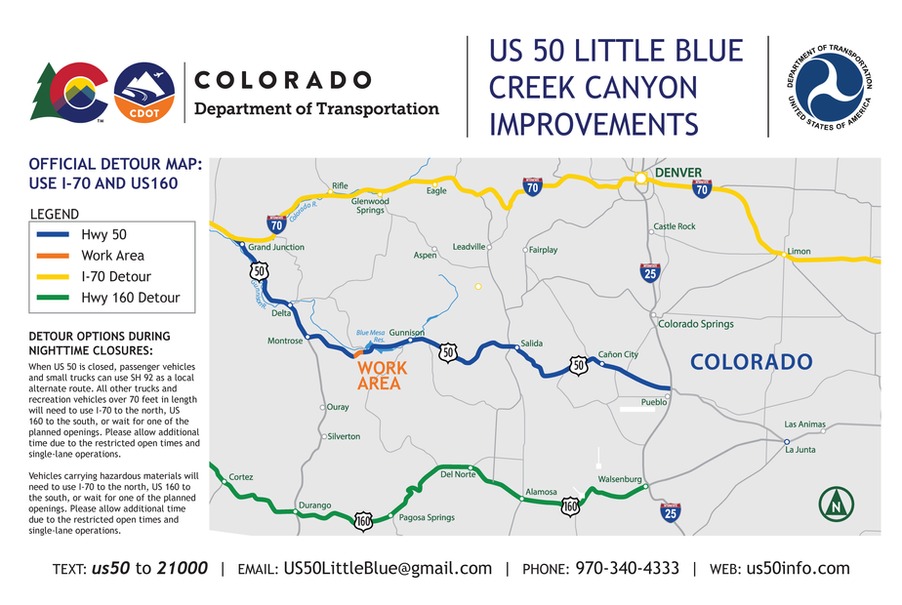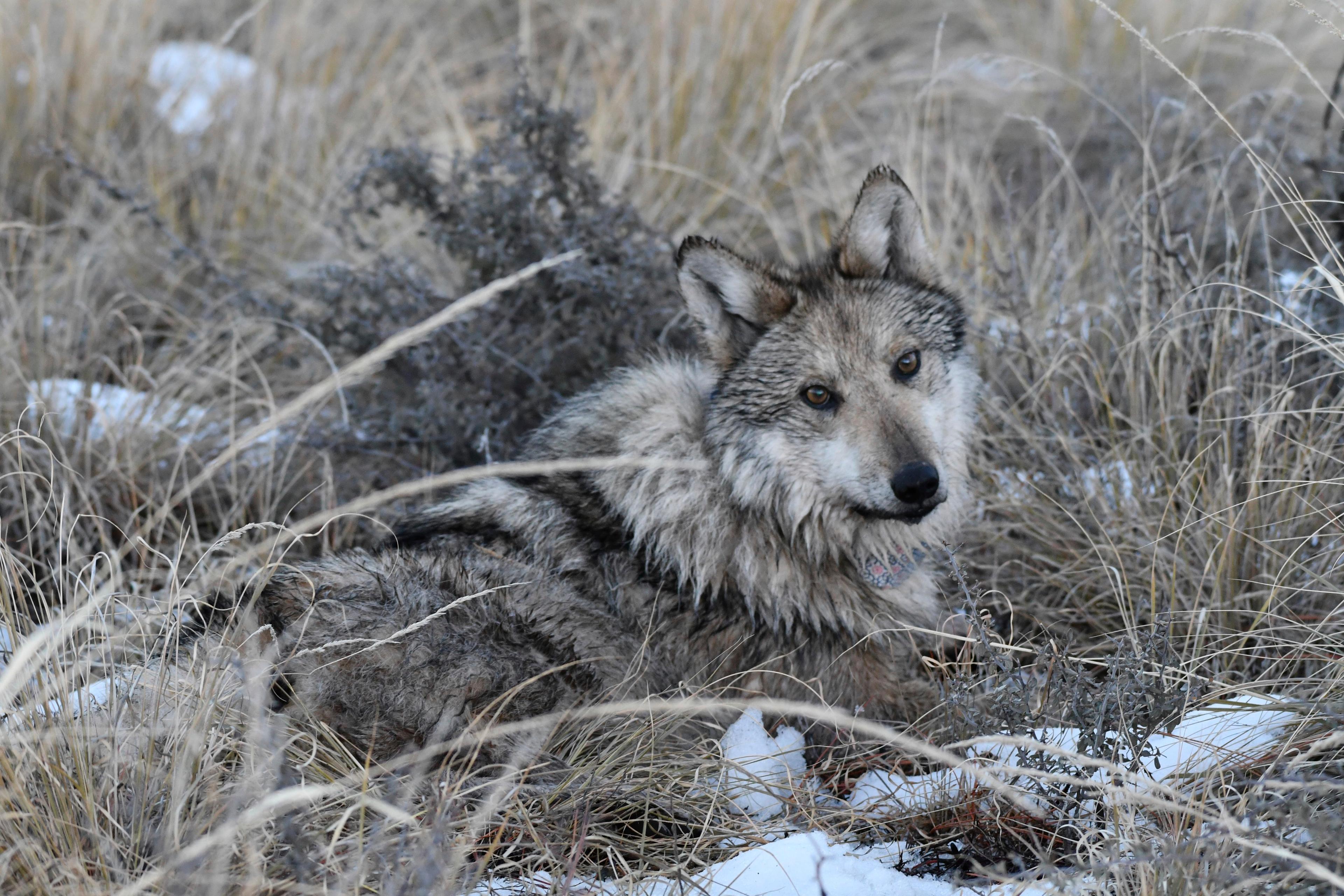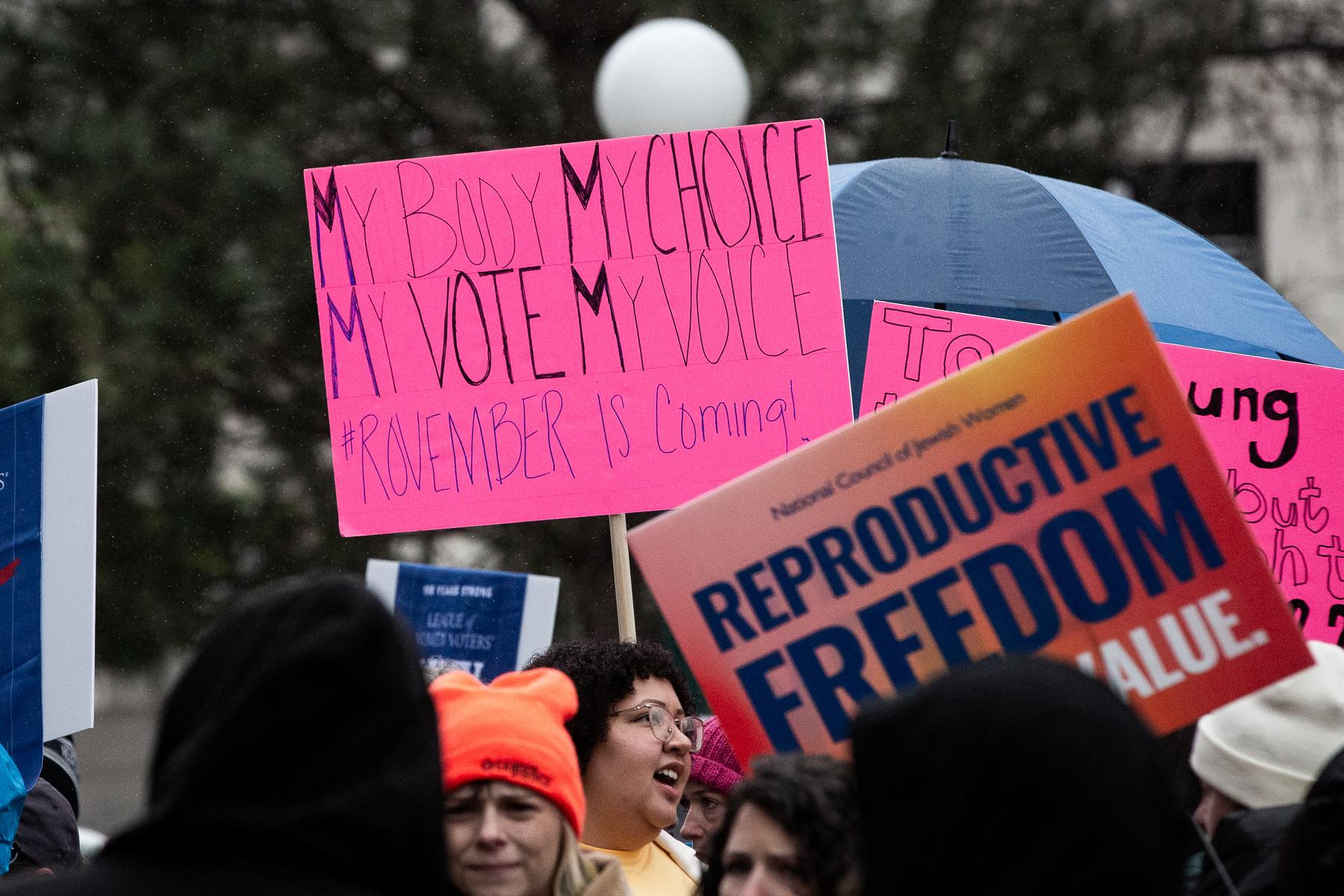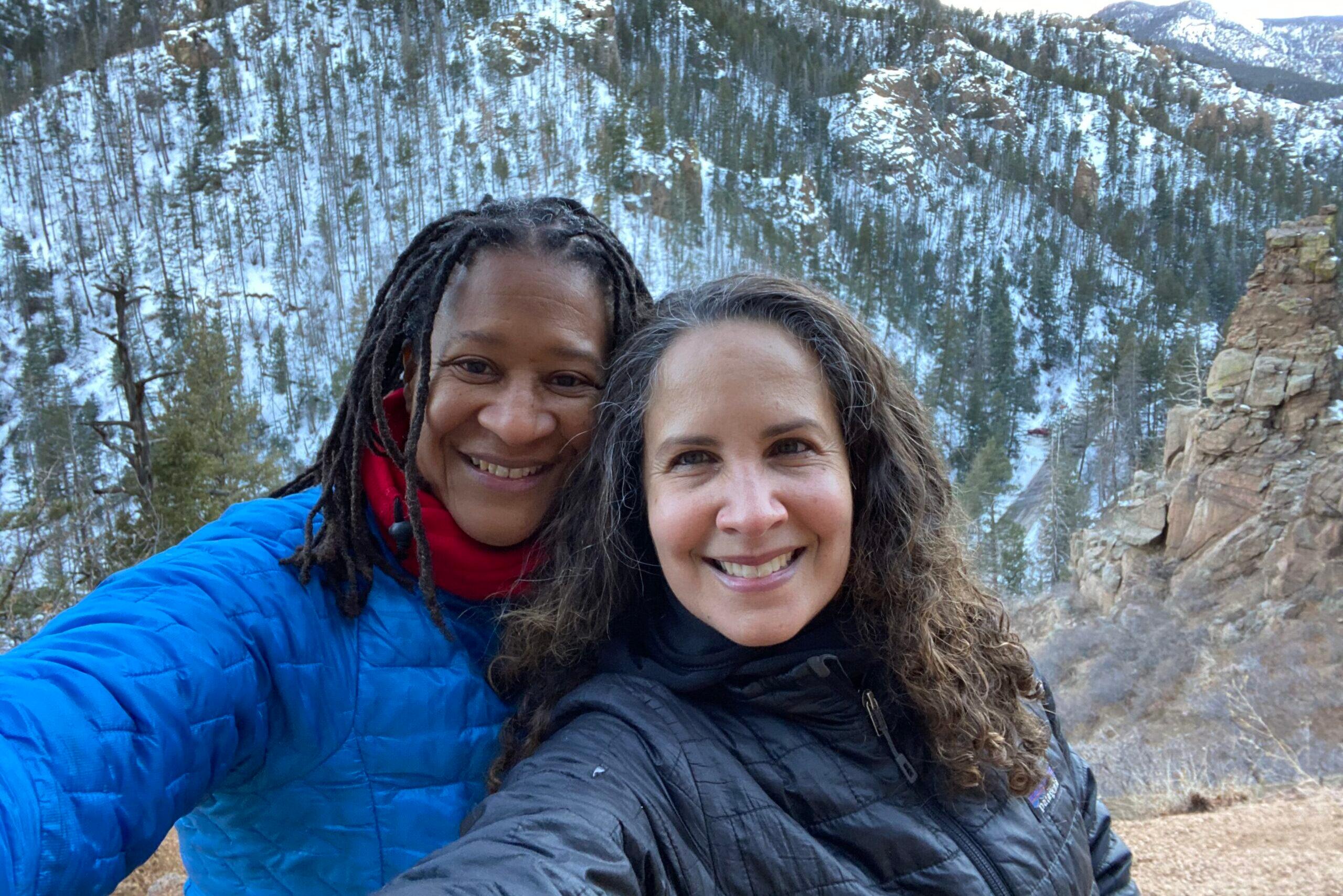
There are two law schools in Colorado and each has just one full professor who is a Black woman. And those two women are a couple. A power couple, you could say.
Professor Suzette Malveaux is a civil rights attorney who teaches at CU Boulder and directs the Byron R. White Center for the Study of American Constitutional law. Her name has recently come up as a potential nominee for a federal judgeship.
Professor Catherine Smith teaches at the University of Denver Sturm College of Law, where she also used to serve as the Associate Dean for Diversity Equity and Inclusion.
Smith and Malveaux laugh when they say they “didn’t get the memo” on the historical rivalry between their schools.
“We don't take the comparison or the competition too seriously,” Malveaux said. “We try to support each other and our institutions as much as possible.”
“We both love Colorado and we love the students that come to both law schools,” Smith added. “So we very much see it as a win-win.”
Collectively Malveaux and Smith have broad legal expertise from employment and LGBTQ rights to the constitutional rights of children. They have both testified and written about legislation — from police accountability to hair discrimination.
The experience of being the only Black women who are full professors at their law schools bonds them, as well.
“When you are the only one, you can feel that acutely. You want to feel like there are folks in the building who understand your journey, and the perspective and experience that you have,” Malveaux said.
First-hand experience with civil rights
Malveaux’s parents grew up in the segregated South.
“My dad was racially profiled when I was really little,” she said. “And you don't forget those kinds of things when you are feeling threatened and scared.”
The encounter happened on one of her family’s annual road trips from Maryland to Louisiana, to visit her grandparents.
“We literally would take the route that the Freedom Riders would take,” she recalled. “My dad was pulled over by the cops for no reason, brought to this little town, put in jail there. We had no idea how that was going to turn out or what actually went down in the jail. And we were sitting outside in the car waiting for him. And so we saw that firsthand.”
When it comes to practicing and teaching law, Malveaux said “there are things that your colleagues and other folks do not experience, have not experienced. Maybe they can relate on some level, but not in a way that is boots-on-the-ground.” That’s something she and Smith bring to the field.
Being the only in any category “can be a challenge and it's isolating,” Smith echoed. But she said she and Malveaux both find support from colleagues from all walks of life — other women, other staff and faculty of color, and their own diverse students. The couple also finds support from a national network of Black women faculty.
“We go to a conference every year, the Lutie A. Lytle Black Women Law Faculty Writing Workshop. It's just phenomenal,” Smith said.
They both see another silver lining in their “only-ness” — an opportunity to push their institutions to think more broadly about who's in the building. Those efforts are important, not just for faculty, but also for students.
“I think the students really are hungry for more diversity at the institution and are serious about that goal," Malveaux said. "I do think that they're looking also to have their own experiences reflected back at them.”
Fighting racism and discrimination
One specific experience Malveaux and Smith have tried to elevate is hair discrimination. They recently testified in support of Colorado’s CROWN Act, which became law last year. Its aim is to prevent racial discrimination based on natural hair types or hairstyles.
“We were invited by the sponsors of that bill to testify,” Malveaux explained. “We bring the legal knowledge and expertise as to why it is hair discrimination is race discrimination, but we also bring personal experiences to the table.”
Malveaux applauds Colorado for being “ahead of the curve” on this type of legal protection.
Smith has another personal experience that fuels and informs her work. In addition to teaching employment discrimination, she was a plaintiff in a lawsuit over gender pay discrimination at her own college. It became known as the DU 8 lawsuit. Smith and seven female colleagues argued that they received lower average pay than their male colleagues. The case was eventually settled out of court for $2.66 million.
“It's one thing to teach it, and have a sort of distance from it, and a whole other thing to be a plaintiff. And that in of itself was very lonely and isolating for all of us, all eight of us, I think,” Smith said.
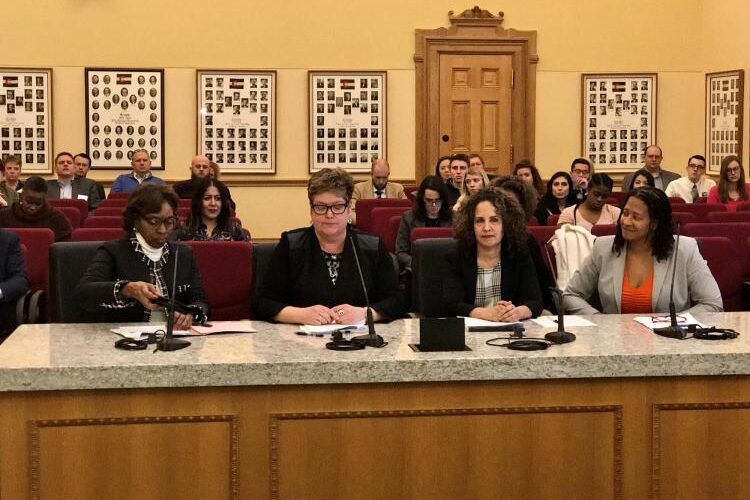
She believes the lawsuit spurred much-needed transparency and conversations around pay.
“When you're doing this sort of diversity and inclusion work, you're doing work for the groups that you might be a member of. But you're also doing it for everyone,” Smith said.
She said a case in point was when a junior white male colleague came to her after the settlement and thanked her. “I had no idea about what I was being paid" compared to others, he told her.
That idea that discrimination hurts everyone also guides Smith and Malveaux’s work fighting racism and police brutality.
“It undermines all of our humanity,” Malveaux said.
Right after the police killing of George Floyd last year, Malveaux and Smith collaborated on an op-ed for the Washington Post, focusing on the Colorado Enhanced Law Enforcement Integrity Act, a police accountability bill.
“Our years of studying constitutional civil rights,” they wrote, “have taught us that police policies and even criminal statutes are not enough to overcome the ‘blue wall of silence’ among officers.”
They argued that “what’s needed are state laws that create an affirmative duty for bystander cops to intervene to prevent use of excessive force or other civil rights deprivations, and that allow civil suits against cops who don’t.”
“We all understand this bystander phenomena,” Malveaux said. “Here we're saying there should be an obligation to do so. And in fact, the Colorado law is really at the forefront of the country in terms of enacting that requirement.”
Although this law grew out of the racial profiling of African-Americans, Malveaux believes “it would be beneficial for everyone.”
How they found their love of the law and justice
Her sense of social justice came at an early age.
“They used to call me little Inez,” she said.
Inez was Malveaux’s grandmother, a Black woman in the South who taught math and science.
“I think I inherited the name because she was a little bossy. She was definitely a fighter," Malveaux said. "And so out of all the four of us siblings, I got tagged with that nickname, ‘little Inez’. And I took that as a compliment.”
Her parents encouraged her to channel that determination into a law career. It was “good for me to be a civil rights lawyer, to go ‘fight the good fight’ out there,” Malveaux said.
Smith, on the other hand, found her “calling” in the law a bit later. But once she found her way to law school at the University of South Carolina it was a mentor who helped her stay the course and propelled her into the career she has now.
Smith met professor Jane Aiken during her first year of law school. She managed to get the top grade in Aiken’s torts class and became her research assistant.
“It just was the start of a relationship that's just been really foundational to me,” Smith said.
Aiken advised her to apply for judicial clerkships, to help her gain experience and build a good legal resume.
“I'd say, ‘Okay, I don't exactly know what that means, but I'm going to go research it and I'll be back,’” Smith recalled. “These are the kinds of tips that can level the playing field in any profession or course of study,” she said.
Now, she and Malveaux try to do the same thing for their students at DU and CU — give the “unwritten rules, the things that you don't know because you might not have had access to it,” she said.
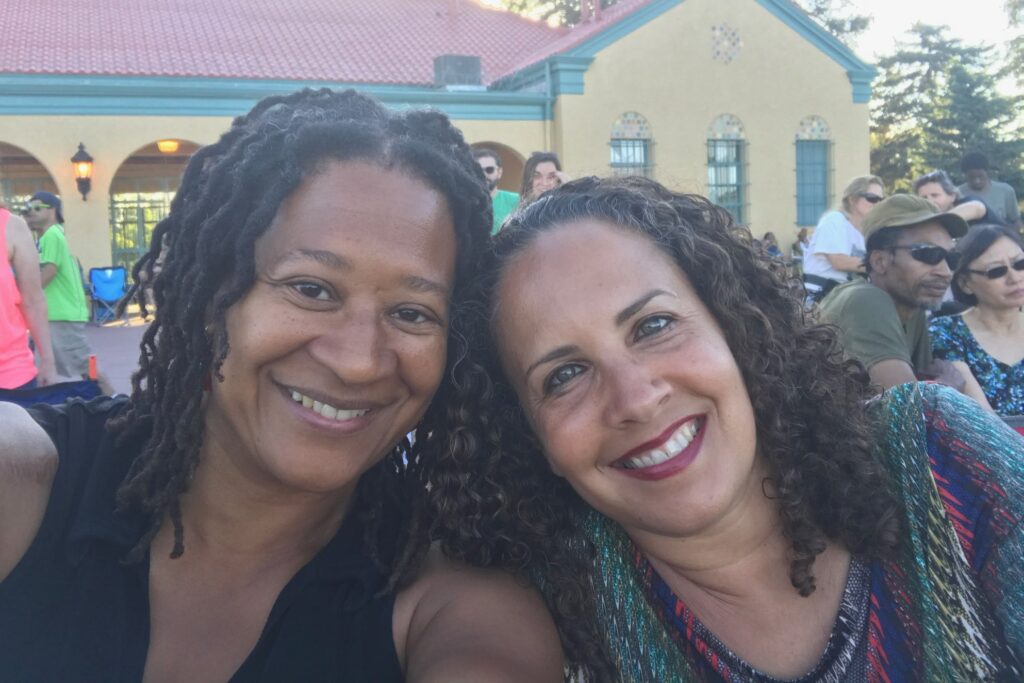
From peers to a power couple
Smith and Malveaux had been in the same professional circles for years and were aware of each others’ work. Over time they became close friends and confidants and eventually a long-distance couple.
“I very much appreciate the fact that Catherine has been an incredible source of support and love and encouragement during a time when my parents were both sick,” Malveaux said.
Her mom had ALS.
“She went through that journey of not being able to walk or talk or eat or move or ultimately breathe and was on a trach and on oxygen and vent and things like that,” Malveaux said.
Her dad was also sick with brain cancer. She took care of her parents for six years.
“I was really fortunate that Catherine had my back” during that time, Malveaux said.
When the opportunity finally arose for Malveaux to move to Colorado for a teaching position at CU, they both did a happy dance.
“Thank goodness there was an opportunity here in Colorado, because there are two law schools. And it's probably good we're not teaching at the same one,” she joked.
In addition to their teaching, both women have worked on some high profile cases.
In 2011, Malveaux represented over 1.5 million women in Walmart Stores, Inc. vs. Dukes, the largest employment discrimination class action in US history. The plaintiffs — Walmart employees — alleged rampant and widespread gender pay discrimination. But that specific issue was never resolved. Ultimately, the case went to the Supreme Court on the question of whether the women could bring a suit as a class. “I'm afraid that the court ruled that this case could not go forward as a class action,” said Malveaux. But she doesn’t view it as a complete loss.
“One of the important things about the case, and really meaningful things, is that we really were able to educate folks about how important it is that women, and really anyone, be able to bring a case together,” Malveaux said. “There's strength in numbers.”
“Having the courage to sue your employers, that's really hard,” said Malveaux. “It's a lot easier if you are doing it with a group, right? And the importance of being able to pool your resources together and not be vulnerable to being fired or harassed or retaliated against.”
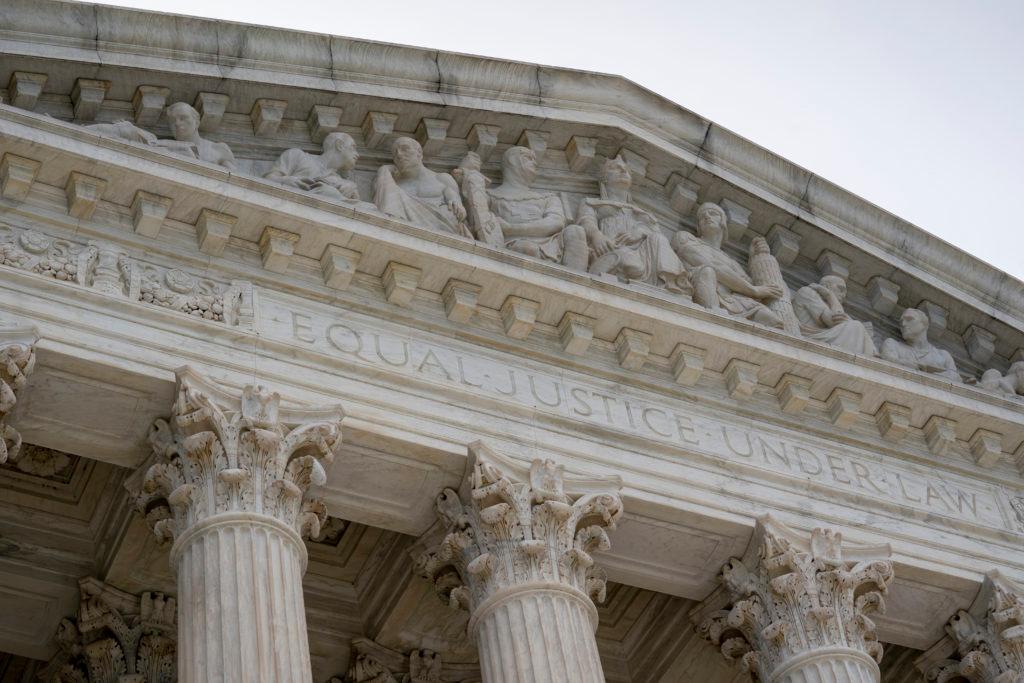
Work on Juliana v. United States lawsuit
When it comes to strength in numbers, Smith sees another nascent area of the law that covers millions of people in this country — the constitutional rights of children. Smith served as an expert advisor for the youth plaintiffs in Juliana v. United States, the high-profile lawsuit that argued the U.S. government violated children’s rights by not doing more to stop climate change.
“Kids are impacted in so many controversies, yet we don't talk a lot about what rights they might have,” she said.
This focus stemmed from Smith’s work on marriage equality. She co-wrote an amicus brief in the case that ultimately decided that same-sex couples have a fundamental right to marry. Her brief was cited by Justice Kennedy. Smith believes that’s because he “felt very compelled by our arguments, but also by the fact that children of same-sex couples are harmed by their parents not being able to marry.”
It was Smith’s contribution to the same-sex marriage case that put her on the radar of the Juliana attorneys.
“It was just really an amazing opportunity to think about kids and their rights in that context, in terms of climate change,” Smith said.
She sees the rights of children as a work in progress.
“I think of the constitution,” she said, “as this document that's really focused on adults and there's a lot to try and pull out about, well, ‘What rights do kids have? And when should they have rights? And why?’"
Those questions have become a major part of her life’s work. And the issue of children’s rights is intersectional, like much of Smith’s own life.
“It might seem like it's not about race or class, but it hits all of those issues, and that's particularly true in the climate context," she said. "The kids that are disproportionately harmed by our failure to act on climate change are kids who live in low-income communities that are often polluted, kids who live in low-lying areas at sea level, kids in Indigenous communities losing their culture and their way of life.”
One of the two Colorado-based plaintiffs in the Juliana case is Indigenous — Boulder's Xiuhtezcatl Martinez, a famous climate activist and musician.
Smith went camping once with several of the kids in the case.
“They're just so bright, and so passionate, and so fearful about what's going to happen to their futures. And they should be,” she said.
Juliana v. United States was ultimately dismissed by the 9th Circuit Court of Appeals. But Smith believes it still has legs.
“We hope they get a chance to have their day in court, but even if this case doesn't proceed, there will be many others. And that's what movements are about," Smith said. "The LGBT rights movement, and the climate justice movement, is about continuing to push and evolve and change the public's way of thinking about them.”
Lessons in the losses
Malveaux wants to emphasize this point — that losing is not always a bad thing. As a civil rights attorney, she said she can’t let losses discourage her too much.
“It's a process,” she said. “A lot of times it's the dissent which is ultimately the law of the future. You may not win the first go-round, or the second or third, but you build, you chip away, you chip away, you chip away, which is the nature of law and precedent, and you ultimately arrive at a just place.”
Malveaux recalled her work representing survivors of the Tulsa race massacre. In 1921, white mobs raided the homes and businesses of Black residents in Tulsa, Okla. — killing and brutalizing hundreds of people and burning buildings to the ground.
75 years after the massacre, Malveaux joined a team of pro bono attorneys to represent 140 survivors — the youngest in their 90s and the oldest aged 105. The claims of constitutional violations were based on a bipartisan report that showed local government had played a role in the massacre. Malveaux and her team litigated the case for six years.
“I was shocked because even the mayor in Tulsa was not aware of this having occurred, and it was not in the textbooks, children were not learning it, people didn't know about it,” she said.
This year will be the 100th anniversary of the massacre. Many of Malveaux’s clients died while the case was pending. It was ultimately thrown out because of the statute of limitations.
“Obviously, it was not possible for people to bring litigation back in 1921 with the system that we had back then,” said Malveaux. “I mean, African-Americans were being lynched. It was impossible for anybody to bring a claim under those circumstances.”
Even though she lost the case, it’s an example she often uses in the classroom.
“Because once the legal system didn't work, we went to the international courts,” she said. “That didn't work, we went to a legislative fix, tried for legislation. When that didn't work, there were people who did documentaries and films who talked about this. And so in many ways, even though we lost the case, we were able to succeed in making our clients feel heard and validated.”
Helping people feel heard and validated is no small accomplishment for Malveaux and Smith. As women of color in a same-sex relationship, they both know what discrimination feels like, and what it means to be seen and respected.
“When you're living at the intersection of these issues,” Smith said, “it's hard to know if you're being discriminated against on what axis.”
She’s thought about this intersection in her personal life, and in her scholarship. She wrote an article called “Queer as Black Folk?,” which pointed out that “just because you're LGBT, doesn't mean that person necessarily is educated about race issues. And just because you're African-American doesn't mean you have everything down about LGBT issues.”
But rather than focusing on that potential clash of identities, Smith prefers to build coalitions.
“Like how are we all marginalized, or treated differently, because we don't meet a particular norm in society?”
Editor's Note: A previous version of this story said Catherine Smith went on a camping trip with Xiuhtezcatl Martinez. Smith went camping once with several other kids in the case, but not Martinez.

